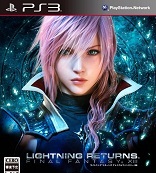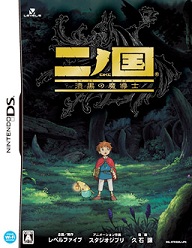RPG Land Review Criteria
Our scoring system thinks outside the box of modern game journalism and might initially appear unusual to some, but please read below. If it didn’t make sense before, it will now.
-First, it should be stated that we have a strict policy to finish all games we review, in the interest of being as complete and as fair as possible.
-A few years ago, we stopped using numbers in review ratings. Readers see numbers and everyone takes them so very differently. Some see 5 as the middle of the scale, some see 7 as the “average,” and slowly, wise gamers are noticing “9 is the new 8.” This should not be so. Some places use an out-of-5 system, but that hasn’t seemed to calm the internet down.
-So we created our own system: WORDS. The words are the most important part of any review, really. So, in our ratings, instead of assigning a number that everyone will argue about, we assign one or two words. Bicker as people might about the value of a 7 versus an 8, if we’re calling a game “Very Good,” it means the writer feels the game is very good. A rating of “Below Average,” means that the writers sees it as a bit below the average RPG of the current time. “Bad” means bad, and “Good” means good. Simple.
-So why do we still have “out of ten” under these words? To mess with people. A “Great” game is a great game, and that’s that.
– Offensive. Makes you wonder how this thing got printed without initial protest. This kind of game is the worst of the worst, and just plain offends the game industry.
– Horrible Better than a Offensive, but not for any reasons that make it worth buying. Reviews marked Horrible or Offensive was mostly written to warn you.
– Bad Maybe a couple things are of good report, but this represents an overall very bad game. Often times, Bad and Below Average titles had much potential that no one capitalized on, leading to slight-to-moderate disappointment.
– Below Average Has some good perks, but the game overall falls a bit short of the “average” mark. It might be an okay trip, especially for the most die hard niche/series enthusiests, but isn’t one of the best titles on its respective system.
– AVERAGE. This is the center of the scale, and therefore, the sum of games for a given system balance out to about this level of quality. Keep that part in mind: the game’s primary competition in our scoring is on the same system, not other systems. While the number may reflect some missed expectations, this is not a bad score.
– Good Has one large or numerous small flaws, but for the most part, the good outweighs the bad. This game provides an above-average RPG experience.
– Very good. It’s like a “Good,” but significantly stronger in certain key areas. Whatever those key areas may be depend on the game in question.
– Great. Not without flaws, but a very well-done and memorable game. A bragging point for developers.
– Excellent. All things considered, this is a top-notch game. May have one or two minor problems, but they are crushed under the game’s overwhelming qualities. It will be remembered for a long time. At other review outlets, a lot of these games will be marked 9.5 or 10/10. Whoopee.
– Legendary. This is almost impossible to obtain. This kind of game only comes around once in a great while. It may even be a couple of years between releases of games like this.
-Our former mission statement was this: “Too often, game review outlets are slanted on a 6-10 scale instead the 1-10 they claim to use. Anything below a 7 is considered trash, if you really read the text of the review and check the reactions of readers. Not here. They hand out 9’s and 10/10 scores like Halloween candy; not us, as we use the whole scale.”
But after we realized the game industry and its readers were still entirely too focused on numbers while ignoring text, context, and interpretation, we removed numbers from our scoring.
-A final rating is a hybrid of tree things: 1) The reviewer’s personal feelings. This is an undeniable element of any review, whether people admit it or not.
2) A critical analysis of game (for example, a Kingdom Hearts fan can’t just dish out perfect scores to a Kingdom Hearts game, even if he’d like to. Heath would have given Romancing SaGa a perfect mark if the rating were ONLY based on feeling), and…
3) How well the game delivers to its potential audience. A game might be marked a little bit higher or lower if it does a good or bad job of delivering to its obvious target demographic/audience/fans.
And there you have it. I once read a review at a large, professional website that had a final score of 77%, and the reviewer said he’d rather not have played the game, and recommended that others stay away. That’s just ridiculous. That’s why we ditched numbers.
We finish every game and we use the whole scale. That’s how we review things at RPG Land.








